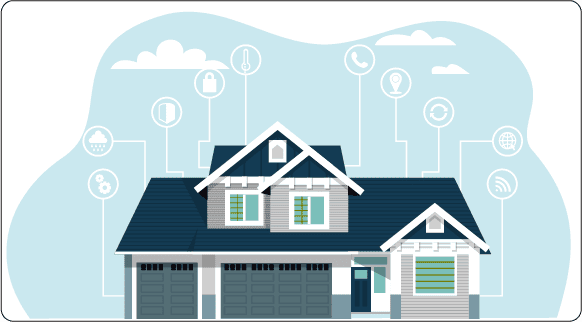Role of Virtual Tours in Real Estate Sector

Modern technology keeps on introducing innovations and reshaping industries. Virtual tours and virtual reality (or VR) are the latest technological developments in real estate.
At the moment, virtual reality is created using 3D designs and a helmet and remote to simulate the virtual world.
Real estate businesses today cannot survive without video tours on their websites because they enable clients to visualize exactly what they need, which allows them to make more informed buying decisions. You can also view a house without physically moving.
The Benefits of VR for Real Estate Agents
1. Saves Time: The use of virtual reality could help real estate agents save time, especially for properties abroad or in remote, rural areas. With this technology, agents can view properties overseas.
2. Better online communication: The VR allows for better interaction with clients online since they can comment on any aspect of the property.
3. Turns imagination into reality: Virtual tours can help potential buyers visualize what a property will look like after it is finished.
4. Increases site traffic: Virtual reality also keeps people’s attention for a longer period than plain text or still images. This will result in more traffic to your website.
5. Offers Global Reach: Taking clients to see properties, negotiating terms and prices, and arranging property visits are all extremely time-consuming tasks. With VR, it no longer matters where your clients reside.
The Benefits of VR for Sellers and Buyers
1. Time saved for buyers: A property tour is not always easy to coordinate, especially if you are seeing several properties that are not all in the same neighborhood.
2. No rush: A real estate agent or seller won’t rush you into viewing a property; you can take your time.
3. Tours available 24/7: Furthermore, VR in real estate allows users to view listed properties at any time.
4. Keeping your home clean isn’t necessary
The Future of VR
It is predicted that VR will soon be able to simulate tastes and smells. For instance, a potential buyer might smell flowers on the balcony during a virtual reality visit. In addition, haptic technology (VR touch) will allow potential buyers to feel the texture.
VR experts are dedicated to creating as realistic an experience as possible for virtual tours to look and feel almost the same as physical tours.
Subscribe to The Real Talks and read our informative and detailed pieces to stay up to date on the latest industry developments.

Unlocking the Power of Feng Shui in Real Estate: A Guide to Harmonizing Your Home
Modern technology keeps on introducing innovations and reshaping industries. Virtual tours and virtual reality (or VR) are the latest technological...
What is External Development Charges (EDC)?
Modern technology keeps on introducing innovations and reshaping industries. Virtual tours and virtual reality (or VR) are the latest technological...
Importance of Highway for Indian Real Estate Sector
Modern technology keeps on introducing innovations and reshaping industries. Virtual tours and virtual reality (or VR) are the latest technological...
Ways to Manage Traffic in Metro City
Modern technology keeps on introducing innovations and reshaping industries. Virtual tours and virtual reality (or VR) are the latest technological...
What is Token in Real Estate?
Modern technology keeps on introducing innovations and reshaping industries. Virtual tours and virtual reality (or VR) are the latest technological...
The Power of Anchor Tenants: How Top Brands Can Boost Your Commercial Real Estate Development
Modern technology keeps on introducing innovations and reshaping industries. Virtual tours and virtual reality (or VR) are the latest technological...
Understanding Balloon Payments in Financing Option
Modern technology keeps on introducing innovations and reshaping industries. Virtual tours and virtual reality (or VR) are the latest technological...

















